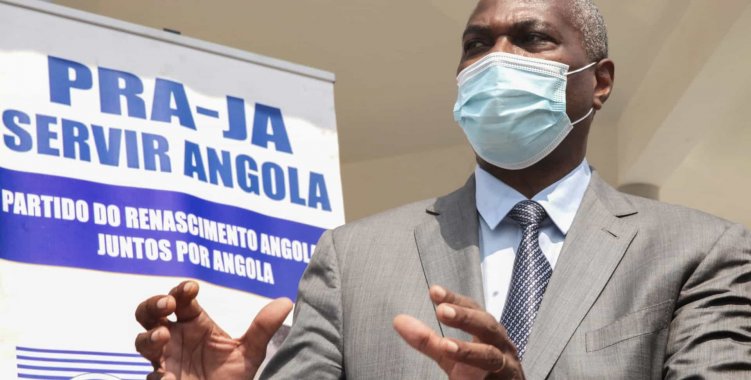According to the politician, the cassation requirement in Angola was never used, because it is legislated, but the citizens never tried.
"And my philosophy of life is: the culprit is the one who doesn't try. It's our right, let's do it," said Abel Chivukuvuku, stressing that in a cassation appeal there are no deadlines.
In explaining the state of the legalization process of Abel Chivukuvuku's new political project, which has been underway since 2019, with successive leads from the Constitutional Court (TC), jurist William Tonet said that the coordinator of the PRA-JA Installation Commission launched a challenge to his team of lawyers to file an appeal in cassation, purging those possibilities in law.
According to William Tonet, article 716 of the Code of Civil Procedure says that it is possible, due to all the defects in the process, for the judgment to be clarified, under penalty of nullity.
"And this combined with the 668th of the mentioned diploma, because here there are enough fundamentals that can lead us to this situation", he said.
Speaking to the press, Abel Chivukuvuku considered that citizens must begin to learn to demand the observance of their rights, "even when it is difficult".
"And one of the consequences that we have already observed on the PRA-JA process is that it helped the judicial institutions themselves to verify that the Constitutional Court's structure was wrong and had to make an organic review of the TC in the National Assembly, because of the PRA- JA ", stressed.
Abel Chivukuvuku said that, from an organic point of view, the court introduced the principle of the existence of two chambers, because the same people analyzed, and consequently failed, all the stages that the process of legalizing the PRA-JA went through - in the administrative phase , the appeal, the recourse to the plenary, the extraordinary appeal and the extraordinary appeal of unconstitutionality.
"They are the same, from now on things will be separated. You can make the appeal in a certain chamber, where it is other people, when going to a second resource are other people," he said.
According to Abel Chivukuvuku, parliament was also obliged to review the law on judicial proceedings, "because there was much debate in the country whether what PRA-JA was doing had legal support or not: extraordinary appeal, extraordinary appeal of unconstitutionality" .
"Now they put everything in the law, because they saw that it was dispersed and we used the various instruments," he added.
For William Tonet, from a constitutional point of view, PRA-JA should be a reality, according to the law, which says that "Angolans' dreams of being able to participate in public life cannot be murdered".
According to the lawyer, the Constitution says that citizens, in order to create a political party, must have minimal representativeness, and the Law on Political Parties speaks at least 7500 signatures, stressing that the law "is not permanent."
"And then there is another minimum in the chain, the minimum of 150 per province. If the interpretation is the minimum we are all aware that 150 times 18 provinces does not give the minimum of 7500, but we are also all agreed that the minimum of 7500 cannot does not represent 6670 compliant signatures that PRA-JA presented ", he stressed.
William Tonet considered that in a democratic country, where there is constitutional justice "there can be no doubt that PRA-JA is not legalized, not because it has not complied with legal procedures, it is because there is a party-democratic interpretation of the Constitution, which prevents it from actually being interpreted the norm ".
According to Judgment No. 654/2020 of 1 December 2020, the allegations about the rejection of an extraordinary appeal of unconstitutionality, brought in Judgment 632/2020, contain several inaccuracies.
In the previous question, about its decision, the TC recalls that the so-called "Extraordinary Appeal for Violation" brought by the PRA JA's installation commission "does not exist in the Angolan legal system", stressing that the same "did not correct the application and neither supplied the deficiencies initially found ".
"The appellant, with the present appeal, should offer allegations in a clear and objective manner, and conclude, in a synthetic way, by stating the grounds because it seeks the annulment of the contested decision", reads in the judgment.







